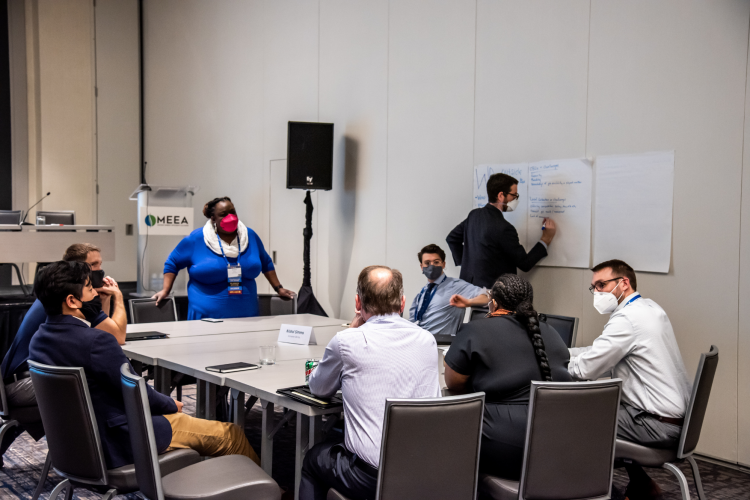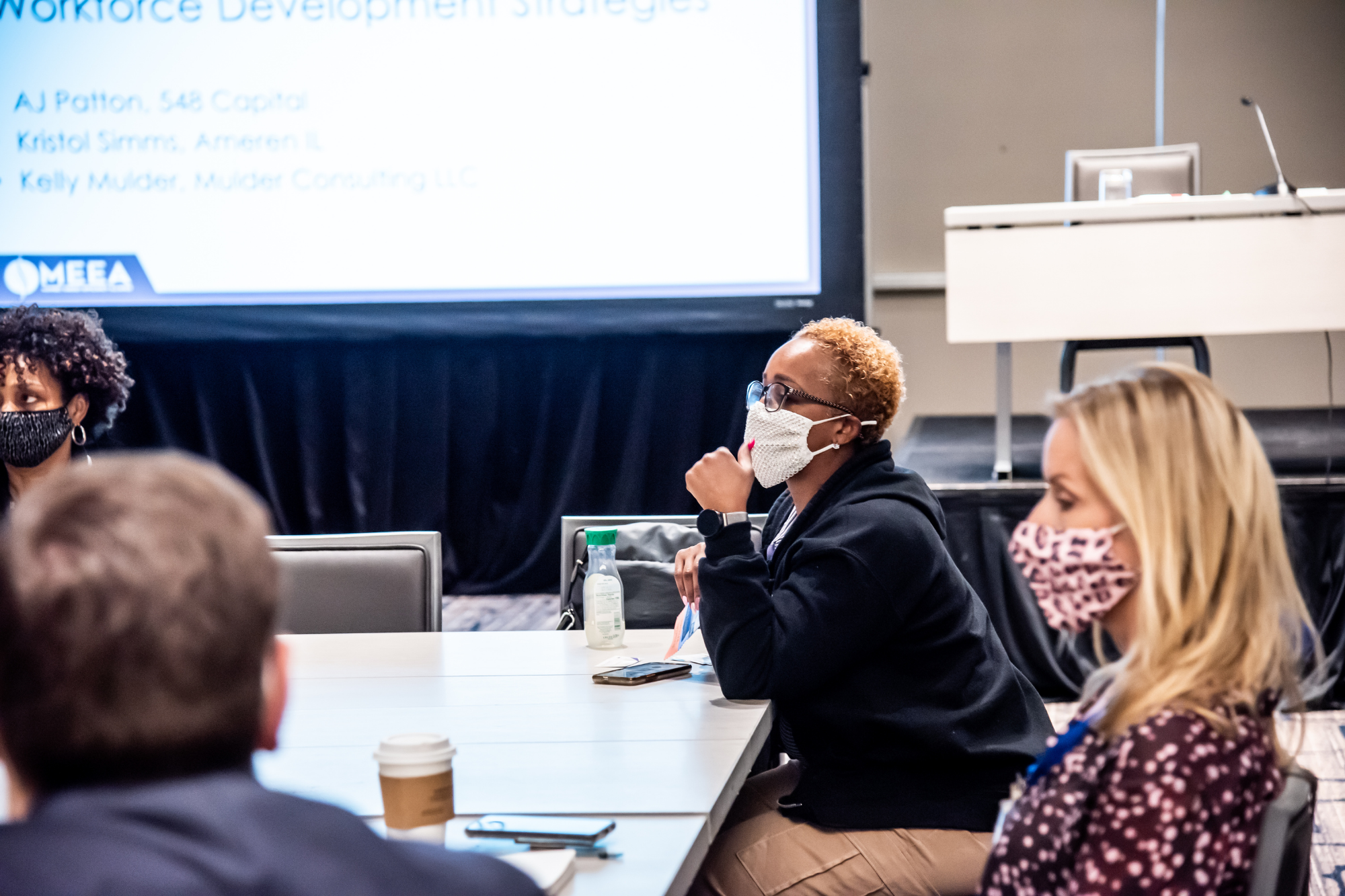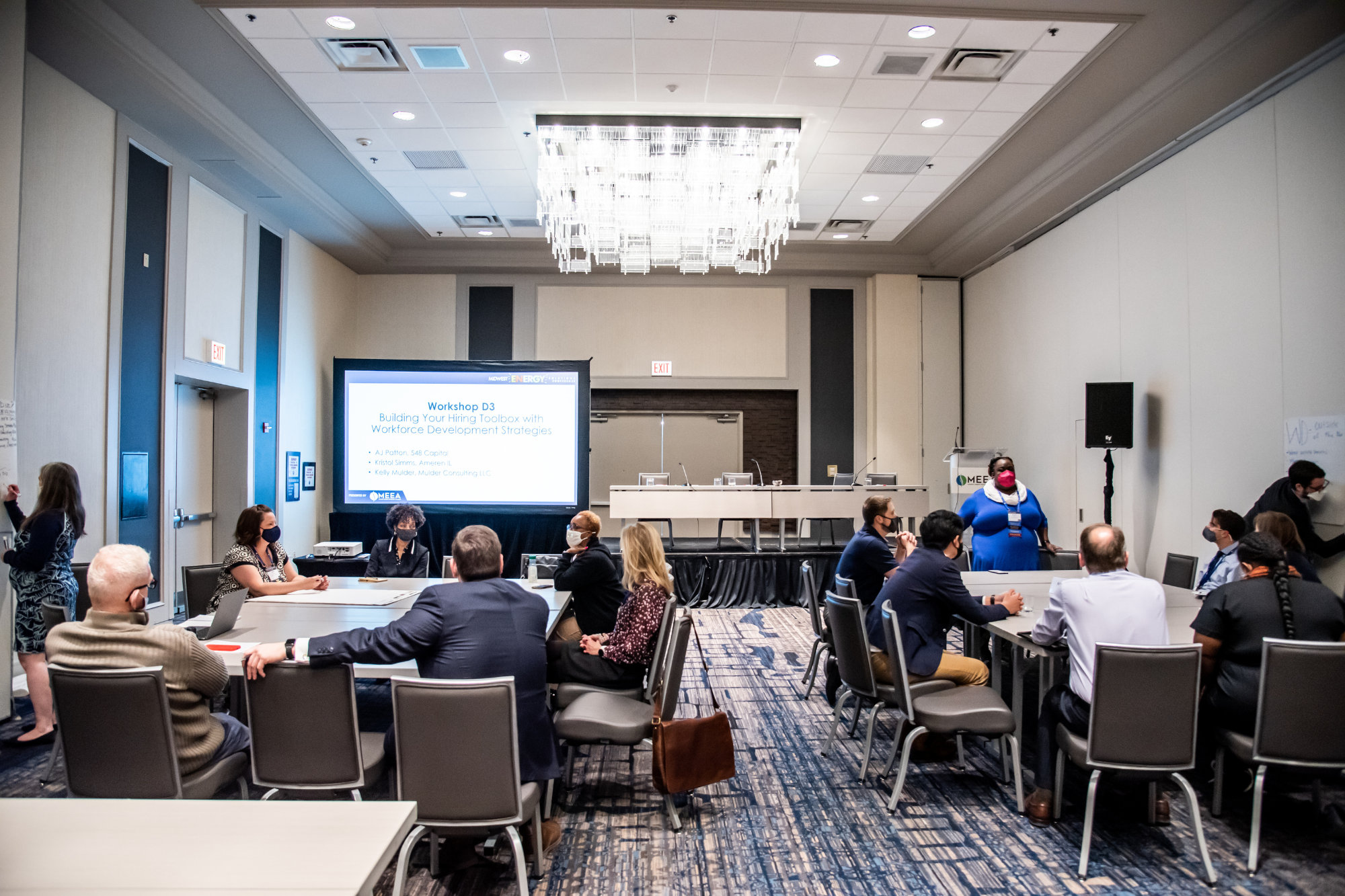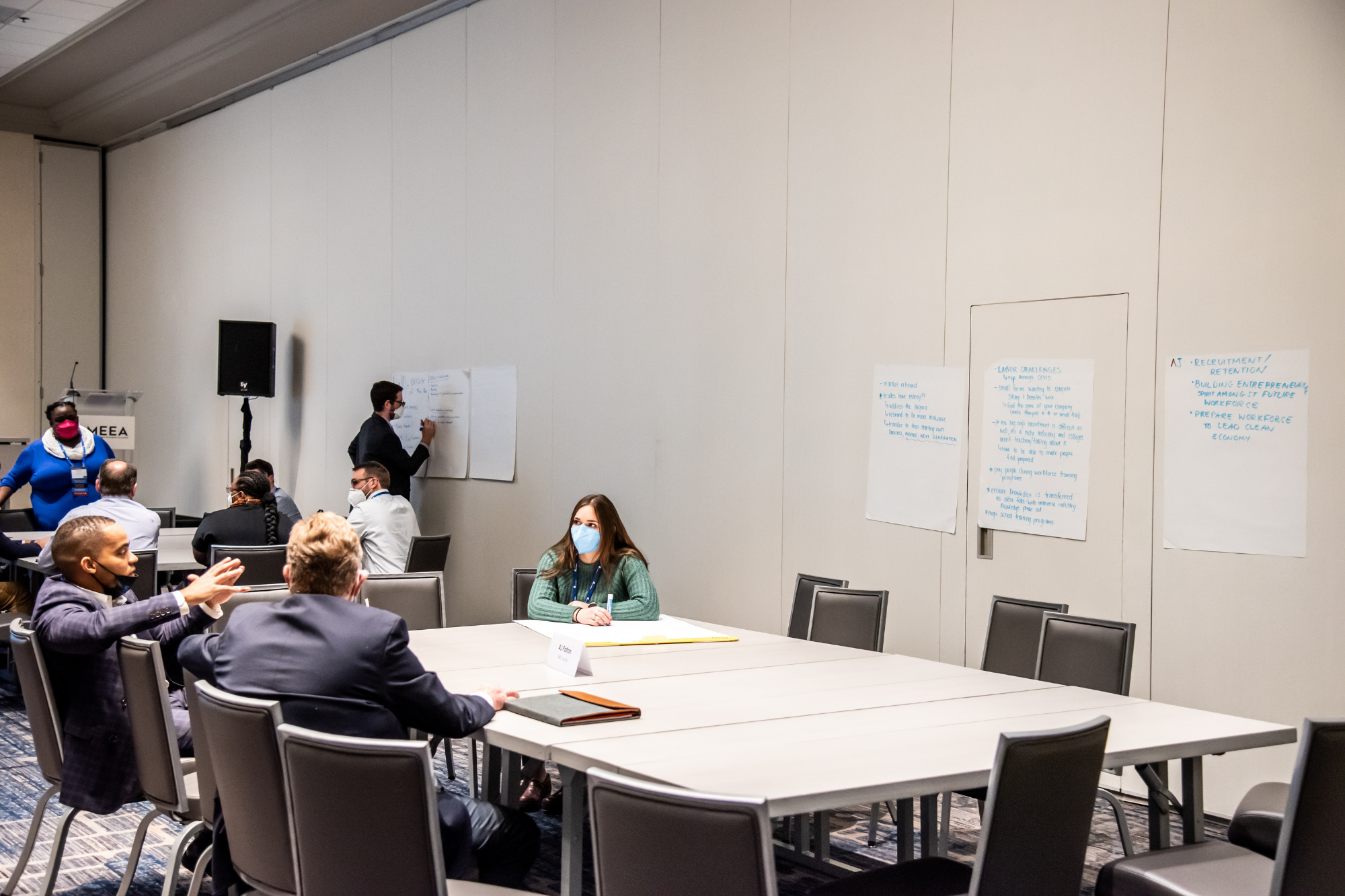
The 2022 Midwest Energy Solutions Conference brought numerous conversations on a variety of topics in and out of the sessions. A trending topic for many attendees was workforce development. The energy industry is no stranger to these discussions, as it becomes increasingly present in state policies like Illinois’ Climate and Equitable Jobs Act and on a federal level through funding allocated by the Biden-Harris Administration.
During MES, attendees were able to attend a workshop focused on workforce development strategies with a strong trio of table facilitators. MEEA Board President Kristol Simms from Ameren Illinois led one of the tables. As Ameren Illinois’ Sr. Director of Energy Efficiency and Regulatory Policy Implementation, Simms was well equipped to facilitate hearty discussions on the topic. Another discussion was facilitated by Kelly Mulder, who recently started her own small business in Wisconsin, Mulder Consulting, LLC, and was able to share both her experience as a small business owner and advice on how other organizations can best engage with small businesses. Finally, AJ Patton, founder and CEO of Chicago-based 548 Capital, was able to bring his extensive knowledge on workforce training programs and entrepreneurship to the table. Take a deeper dive into these conversations below.

Kristol Simms set out to design a mock workforce development pilot program connecting community-based organizations, training centers and local contractors. While the discussion emphasized the need for coordination and adequate funding for program participation and training, Kristol focused the conversations on prioritizing wrap-around, supportive services for prospective trainees/program participants, such as childcare, transportation, compensation, etc. Workshop attendees engaged with Kristol on a robust discussion of considerations across the CBOs, training centers and contractors, including the lack of capacity and the ways a pilot initiative could more broadly enhance all areas of their work. In the end, conversations arrived at the need for adequate funding to support the coordination, put the necessary resources into place to ensure successful collaboration and eventually build a robust utility-supported energy efficiency work force.

Kelly Mulder, owner of Mulder Consulting, led the small groups through a conversation that explored the value of small businesses, opportunities to partner with small business and ways for small businesses and others to foster workforce development. Mulder began by reviewing various definitions of a small business and clarified that, for this workshop, the discussion would focus mostly on businesses with fewer than 10 FTEs, sometimes referred to as a microbusiness. Attendees identified benefits of partnering with small businesses, like easier access to subject matter experts and nimbleness. The group discussed actions that can be taken to help promote collaboration and all agreed that it was important to provide opportunities for small businesses to participate in roundtables and other forums, and to listen to their contributions. Some participants shared examples of how they had adjusted the requirements for a scope of work to help accommodate small businesses. Others cited resources they created or distributed to help small businesses meet requirements or find partners to help satisfy them.

AJ Patton is passionate about equipping folks with the tools to engage in the energy industry and the knowledge to pursue individual entrepreneurship. With a large range of organizations represented at his table, there were great conversations on the challenges to workforce development and strategies to overcome them. Everyone around the table agreed the energy industry is niche and colleges aren’t teaching or talking about it. That presents challenges in recruitment for large organizations, but also smaller firms who struggle to compete in terms of salary and benefits. A possible solution discussed was developing high school training programs that present opportunities for students who might prefer the trades path and going into the energy industry as opposed to the four-year college track. Patton and others agreed that the trades are presented as a less valuable career path, which requires a market rebrand across the industry and education programs. There is a lot of money to be earned through the trades, and while it is physically demanding work, there are many pathways for upward mobility through those fields. To rebrand, folks discussed needing to address the current stigma, changing to be a more inclusive industry and empowering the next generation of folks to start their own businesses. With that next generation in mind, another key takeaway from this table’s discussion was the emphasis on knowledge transfer as older generations with immense industry knowledge begin to phase out. They are uniquely qualified to share experiences with the new generation, and that should be valued. Finally, to make all workforce development programs more inclusive, everyone agreed finding a way to pay people during workforce training programs is an essential step to increasing the accessibility of the industry.
All in all, there were great contributions from everyone in the room that left attendees with concrete tools to bring back to their organizations. MEEA is proud to continue to host these discussions at our events.